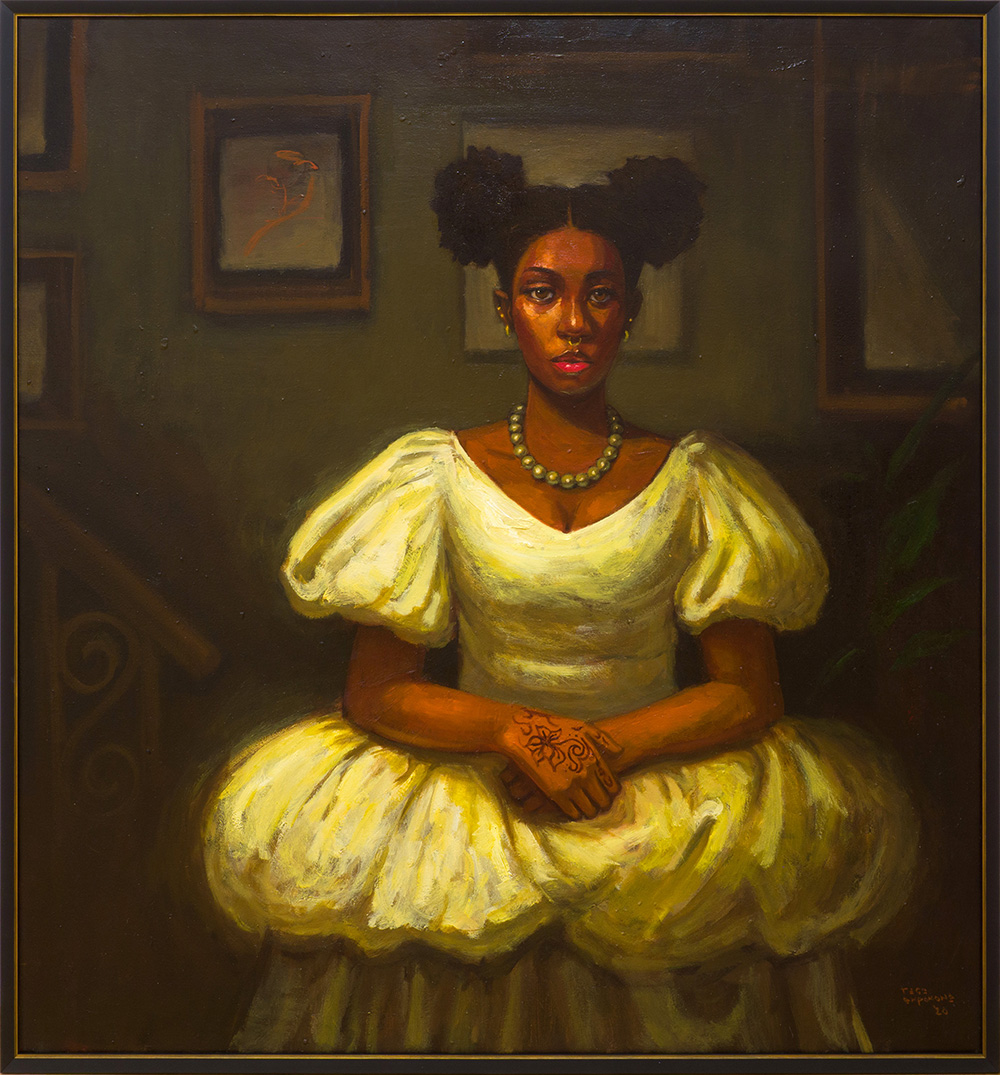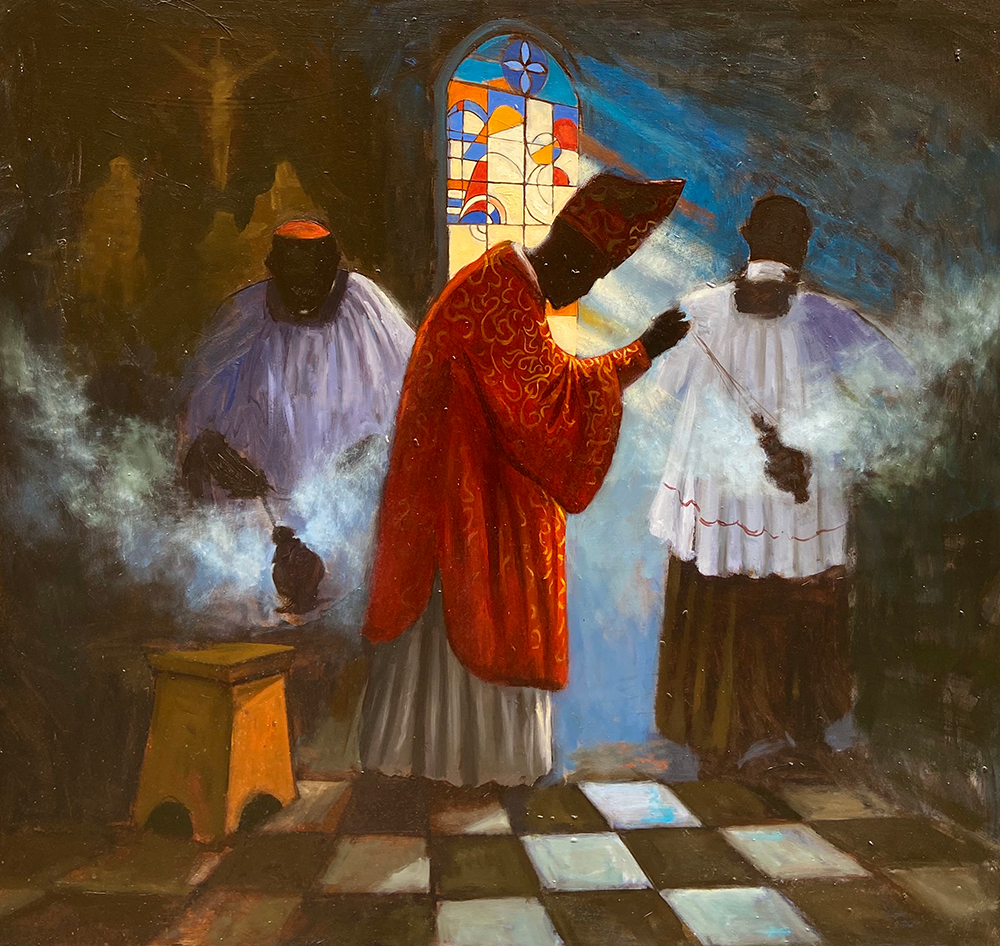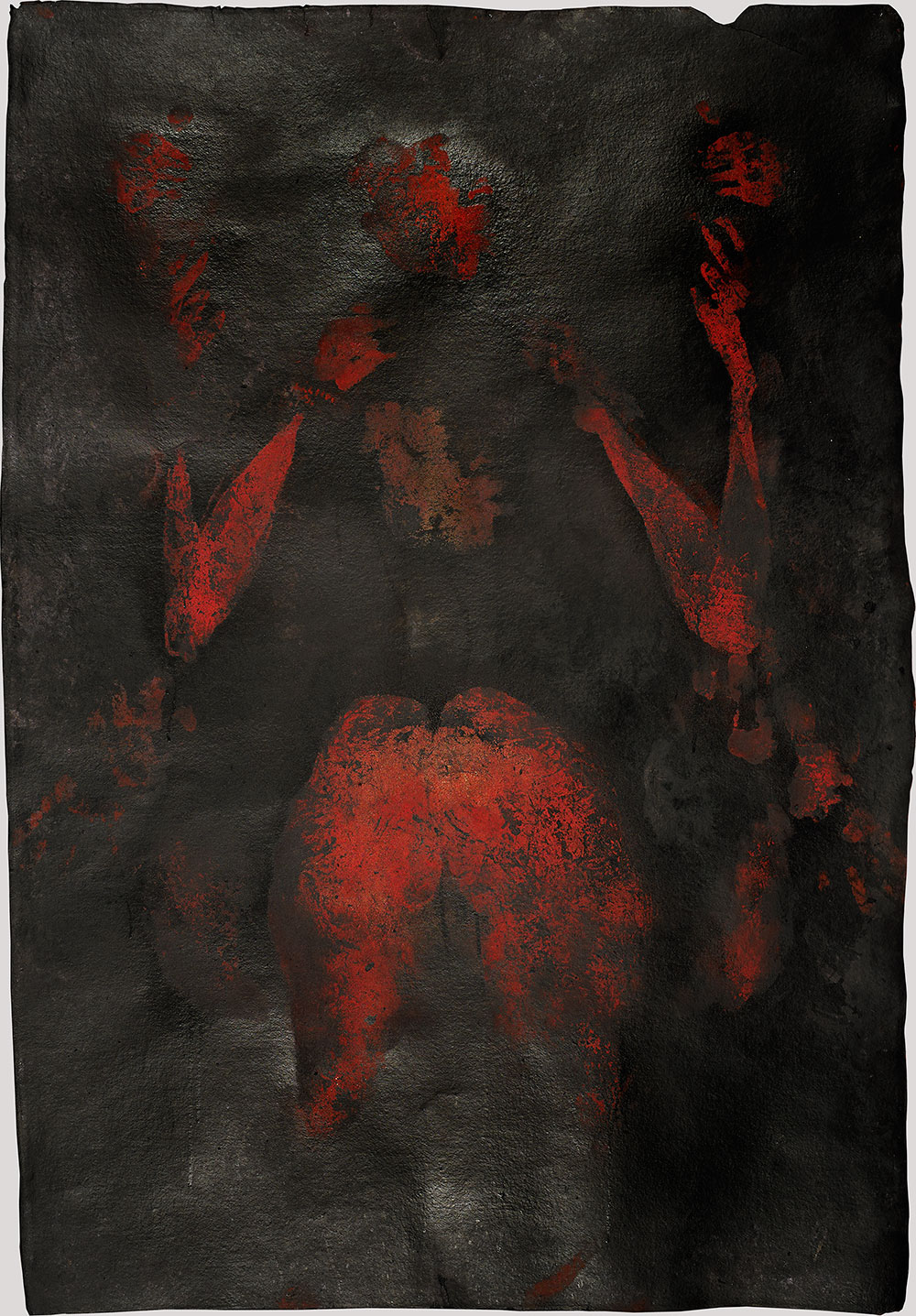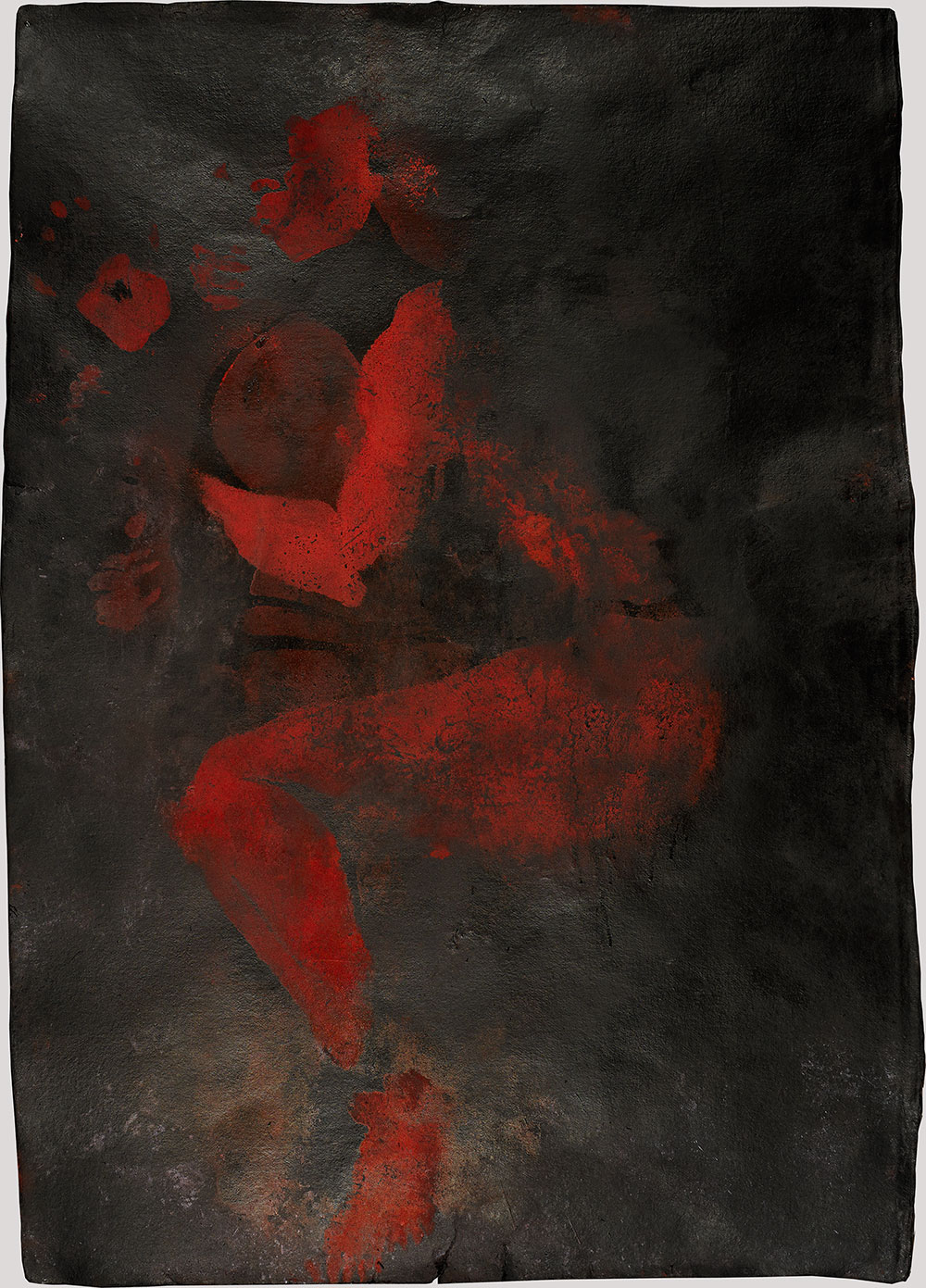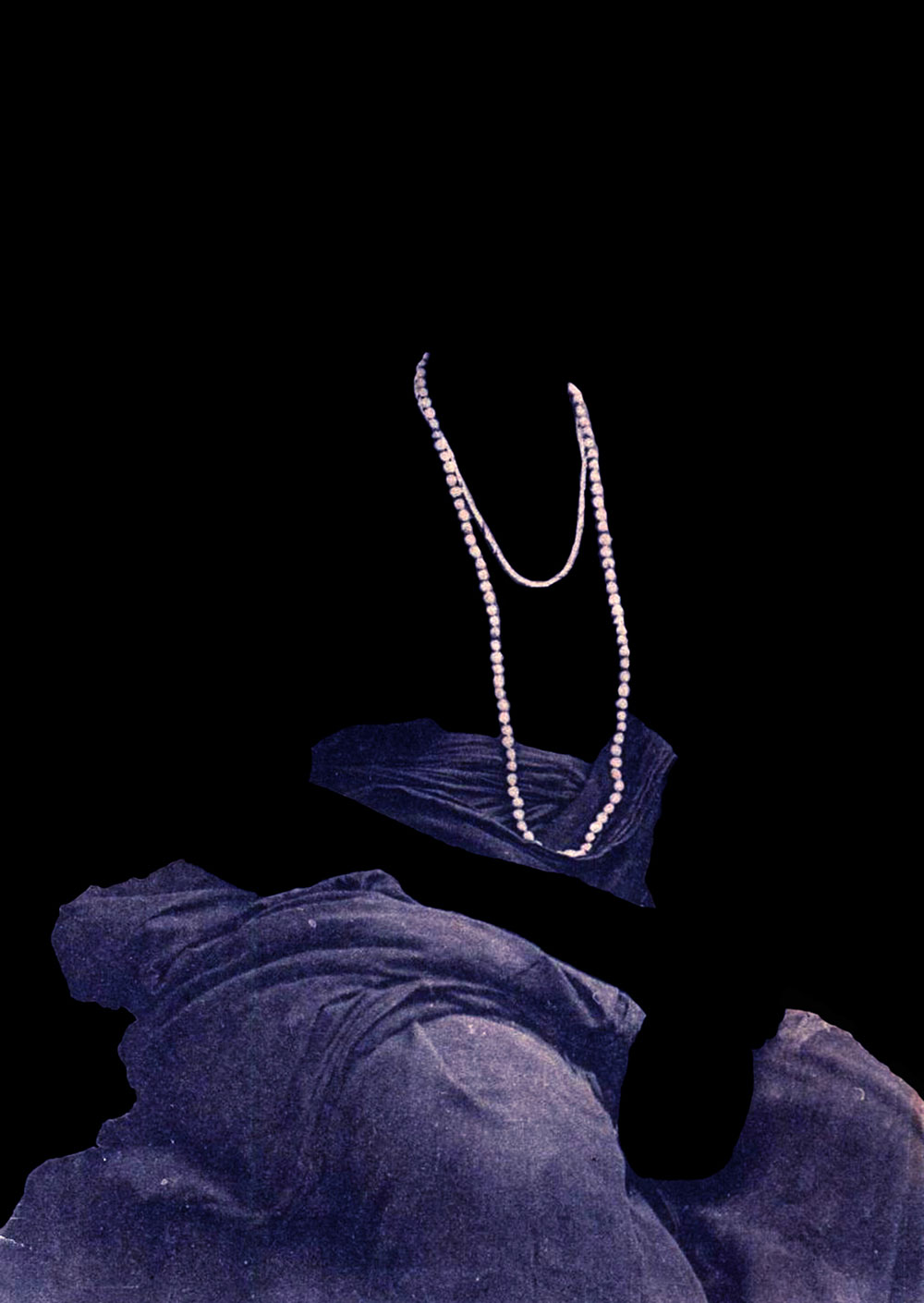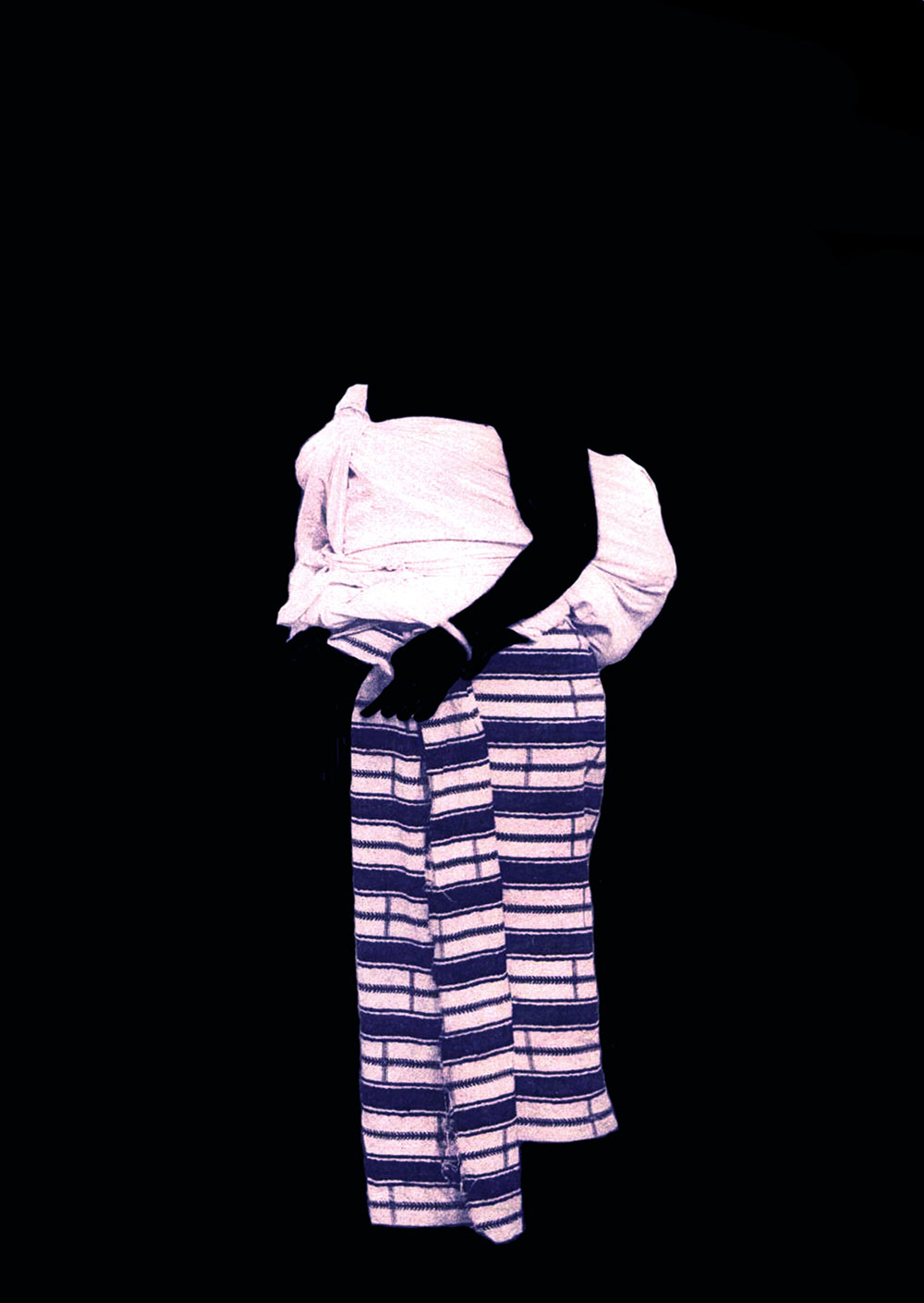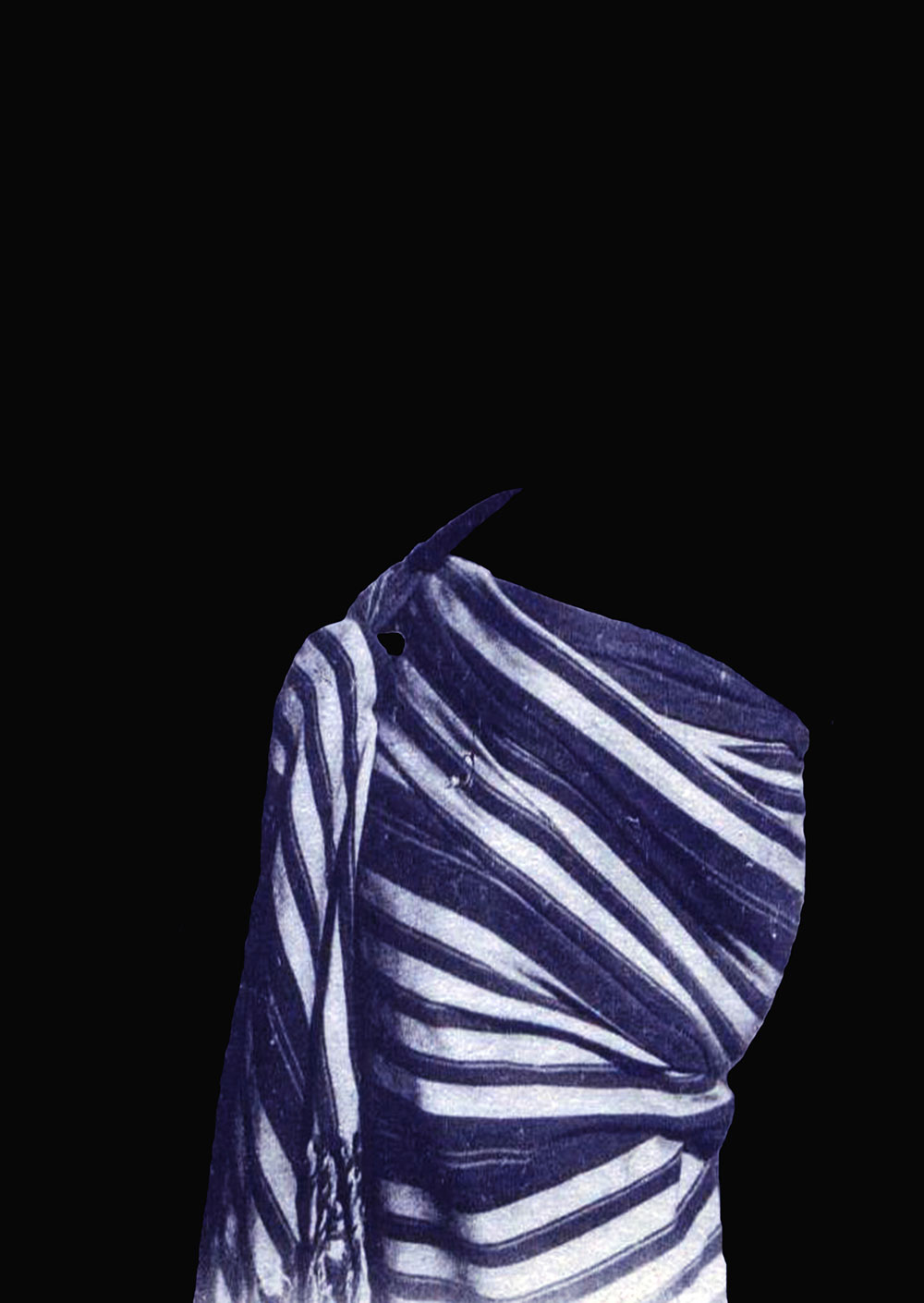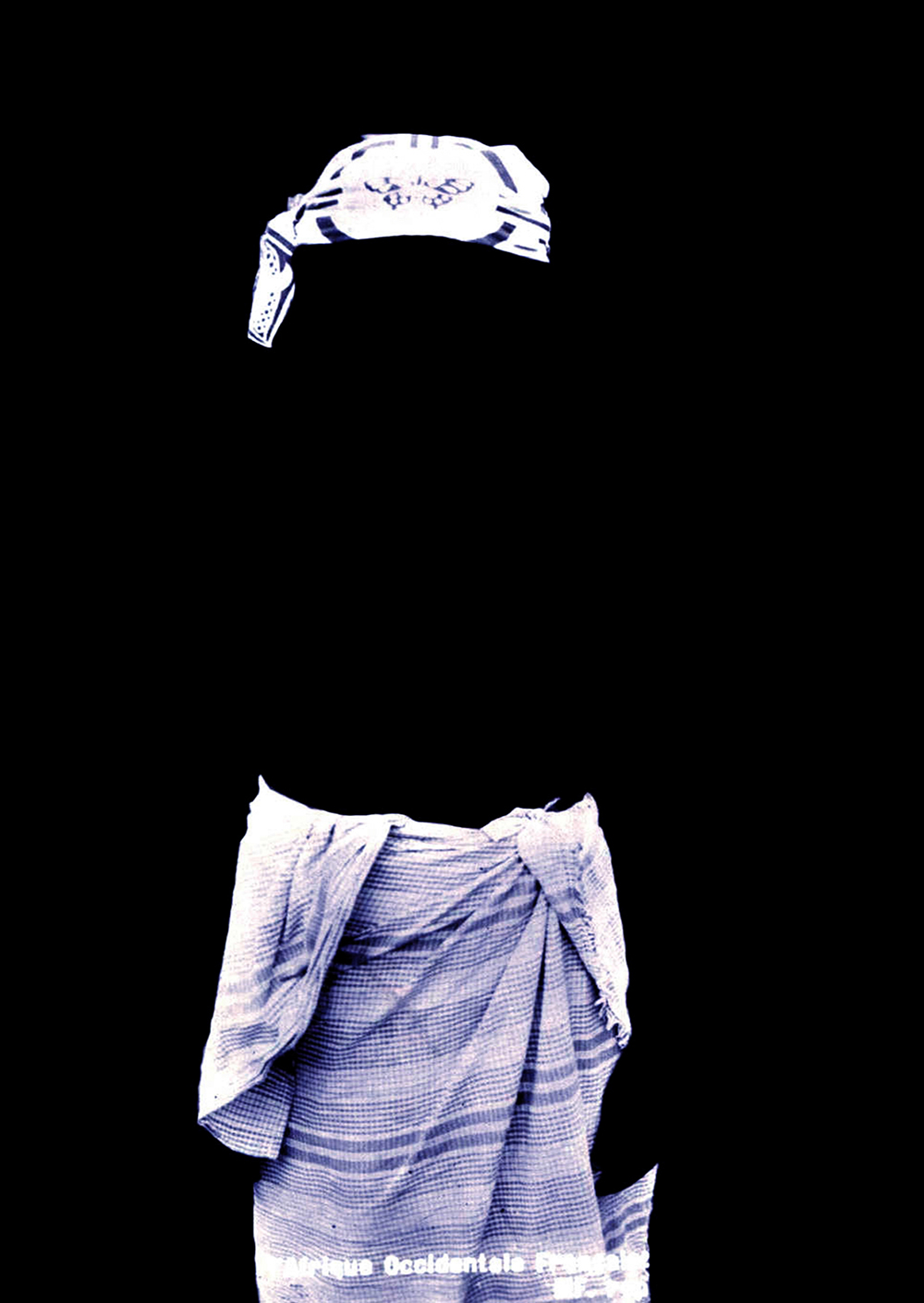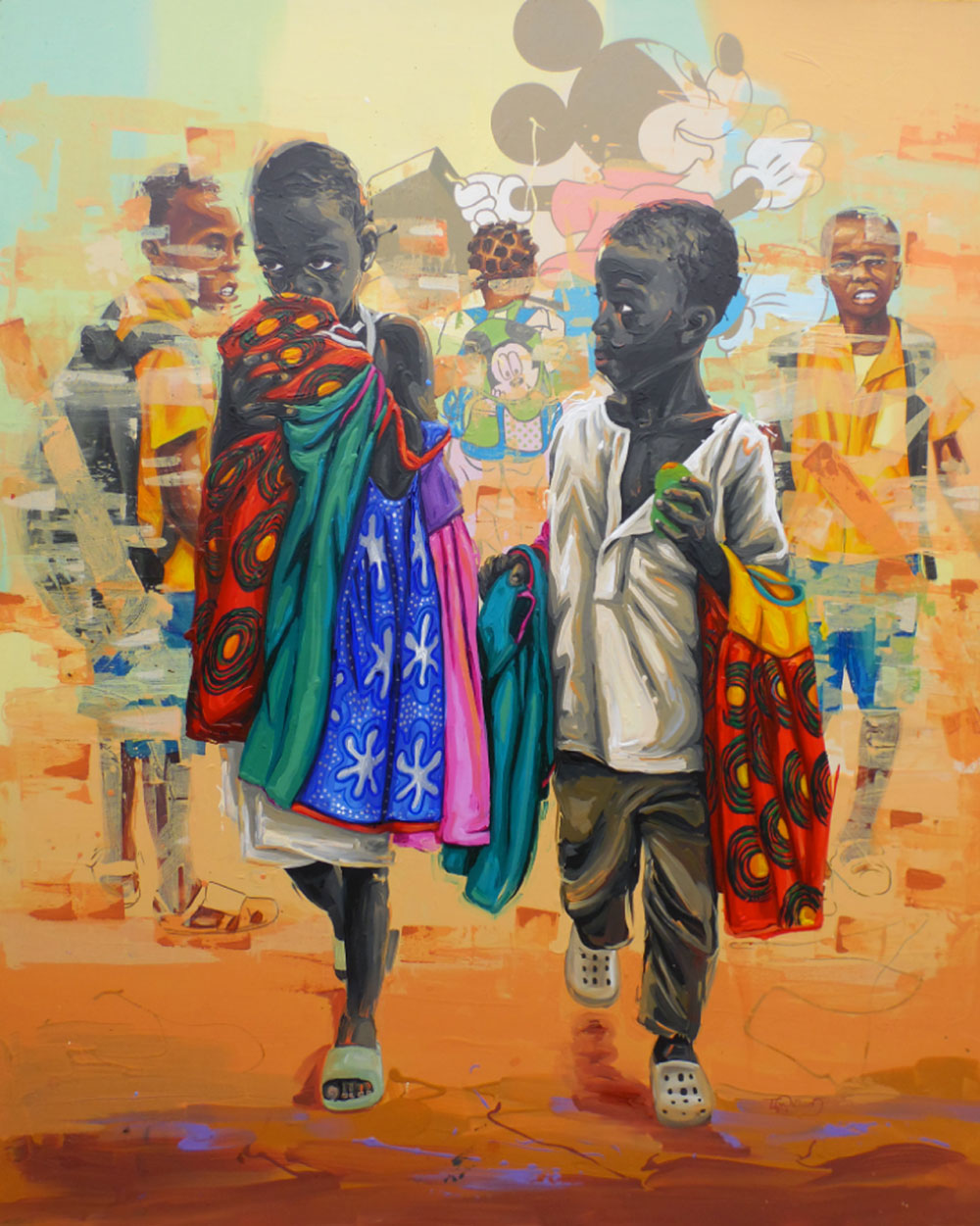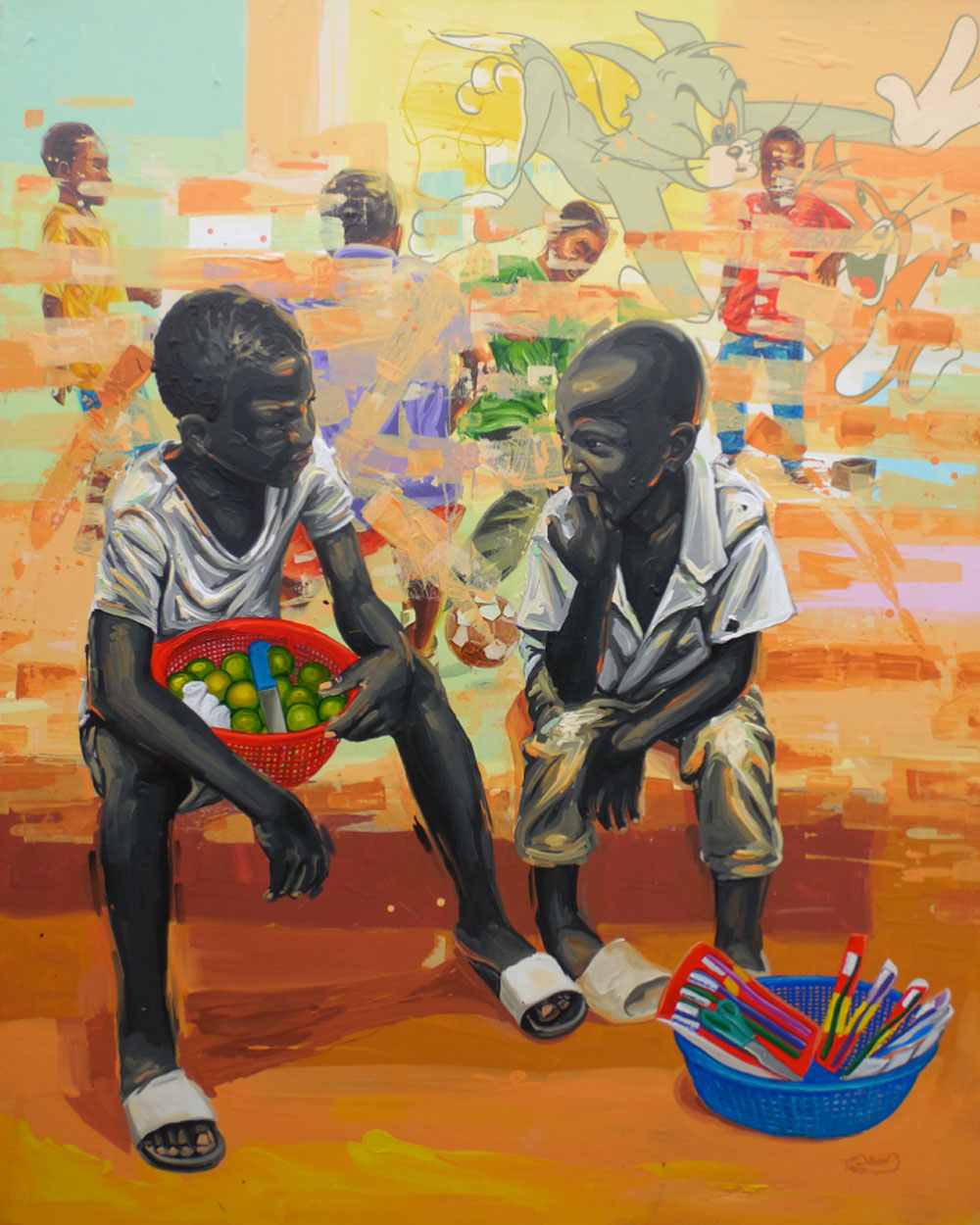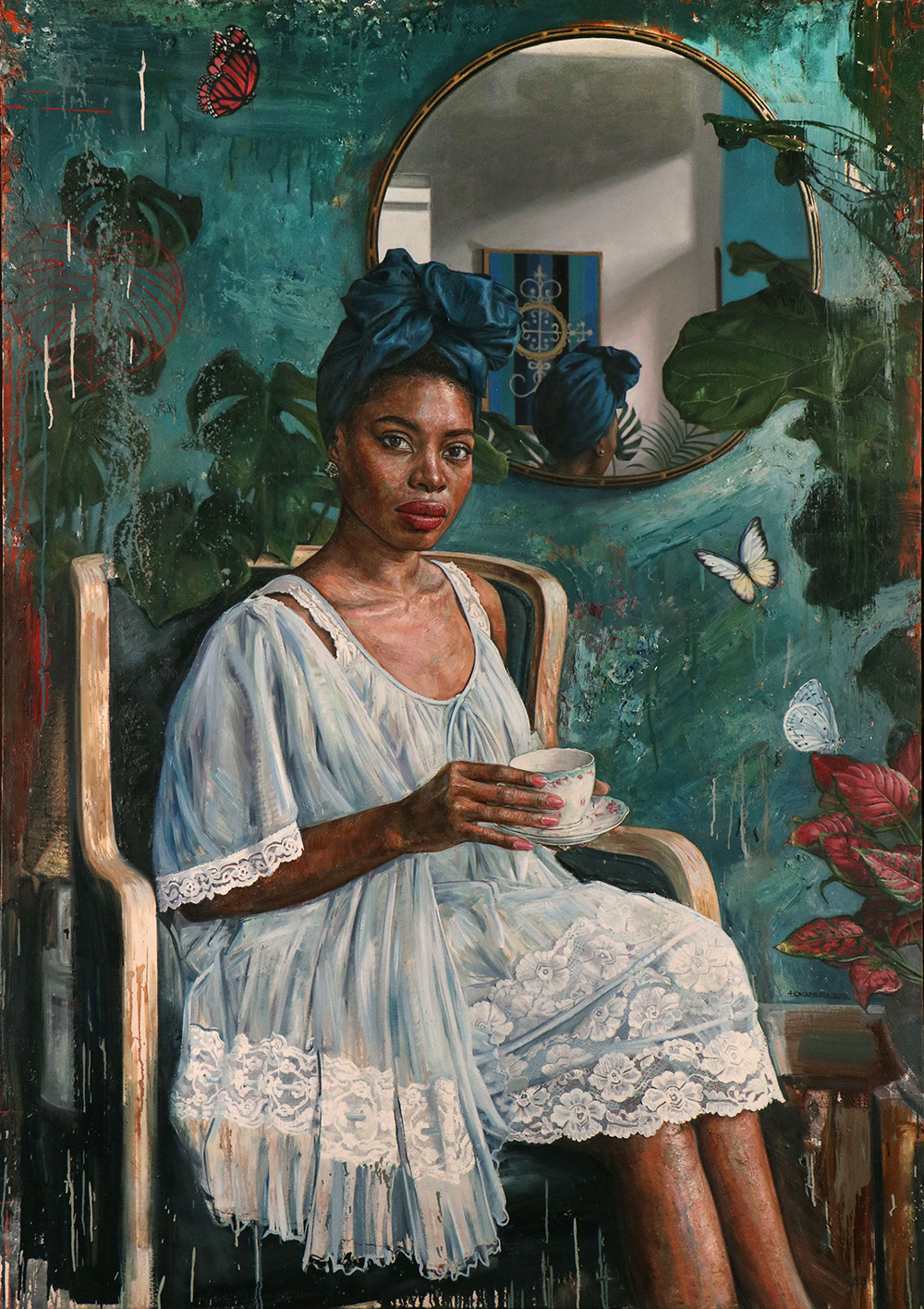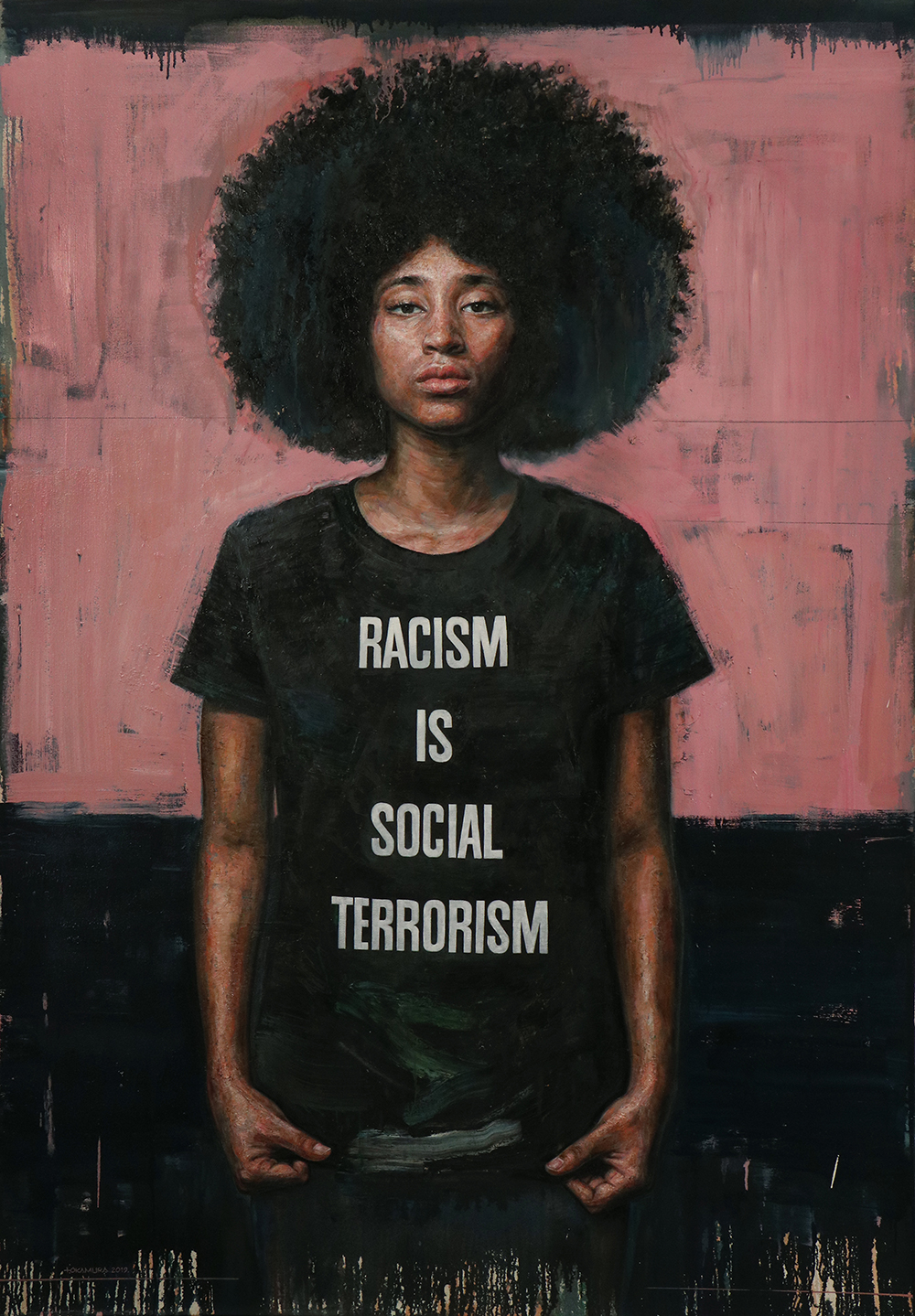Sakhile&Me is pleased to present Figures, a group exhibition that highlights interdisciplinary approaches to centering the human form in artistic practice. The thirteen works in the show include two oil paintings by Tega Akpokona, two body imprint works by Adelaide Damoah, five photographic prints by Mbali Dhlamini, two acrylic paintings by Tagne William Njepe and two oil paintings by Tim Okamura. The exhibition will run from June 18 until August 8, 2020.
Tega Akpokona's atmospheric oil paintings examine the human experience as forged by cultural identity. Born in Nigeria, Akpokona focuses on the black figure, showing fictional characters in paintings that merge nostalgia with contemporary settings. He draws on Dutch Baroque in his use of light and subtle color contrast and counts Van Dyk, Rembrandt, Caravaggio, Reubens and Vermeer among his influences, stating that "I'm fascinated by the way they told their stories. From the theatrical lighting, dramatic movement of forms, to the depth of emotions they conveyed through paint. Thus, the prevalent feature in all themes I explore in my work is light and how it interacts with human existence."
British-Ghanaian artist Adelaide Damoah works at the intersection of painting and performance within the context of colonialism, identity, sexuality and spirituality. Her current practice involves using her body as a "living paintbrush" to paint or print onto various surfaces. Initially inspired by a desire to subvert Yves Klein's "Anthropometries," in which he directed a group of women to cover their nude bodies in his signature Blue paint and then imprint themselves on white paper, Damoah prints her body onto white surfaces, thereby remixing Klein's original performance through her own identity and encouraging discussion about female representation, feminism, sexual stereotypes and art history.
In the case of the works "Olga" and "Marie-Therese," Damoah responds to a play called "Picasso's Women," which consists of a series of monologues from the perspective of the most important women in Picasso's life. Damoah responds intuitively to the monologues using her body memory to create works which remember these women's stories. Olga Khokhlova was Picasso's first wife, she came from a Russian noble family and was a professional ballerina. The work named after her feels flamboyant and full of drama, darkness and sadness. Marie-Therese became Picasso's lover when he was still married to Olga. Only 17 years old at the time, the painting shows her in foetal position, trying to clutch on to a shadowy figure that fades into the background. Picasso never married Marie-Therese and left her when he moved on to his next relationship with artist Dora Maar.
Mbali Dhlamini is a multidisciplinary South African artist and visual researcher whose work explores the decolonisation of contemporary African identity-making. She performs visual, tactile and discursive investigations into current indigenous cultural practices. Her work is in constant conversation with her past and present visual landscapes. Working to maintain a state of unlearning and relearning, her process recognizes language as a medium of understanding and as a repository of knowledge. The works in the exhibition are digitally reworked colonial portraits of West-Africans wearing traditional clothing and stem from a research fellowship at the RAW Material Company in Dakar (Senegal), investigating the cultural significance of traditional indigo dyeing and the symbolism of indigo fabric within indigenous Senegalese communities to open discussions about knowledge systems and the importance of indigenous philosophies in contemporary societies.
Tagne William Njepe was born in Douala (Cameroon). Growing up in a single-parent household with a sick mother, he was forced to work at an early age and eventually had to leave school early to provide for his family for several years before studying fine arts and print making at the Atelier Viking in Douala. The loss of childhood plays a key role in his work, particularly the series Enfance volée ("Stolen Childhood") of which two works are shown in the exhibition. Exorcising his own experiences of forced labor, Njepe portrays children doing odd jobs, their everyday reality juxtaposed with the bright colors of the background that visualizes a world of dreams filled with cartoon characters and cheerful peers, thereby denouncing child labor and championing the right to education.
Canadian artist Tim Okamura investigates identity, the urban environment, metaphor and cultural iconography through painting. By combining an essentially "realist" approach to the figure with collage, spray paint and mixed media, he juxtaposes the rawness and urgency of street art with academic ideals to create a visual language that acknowledges a traditional form of story-telling through portraiture, while infusing the work with resonant contemporary motifs. "The Parlor" is a portrait of artist and fashion designer Paola Mathé, founder of the Fanm Djanm head wrap collection, whereas the painting "Racism is Social Terrorism" is from a recent series of large-scale works denouncing racism, misogyny and social injustice.
